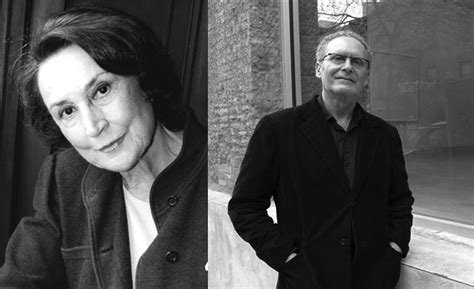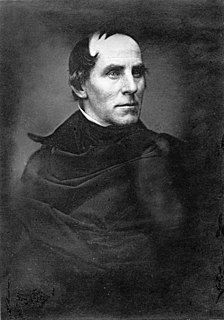A Quote by Ralph Waldo Emerson
Shakespeare possesses the power of subordinating nature for the purposes of expression, beyond all poets. His imperial muse tosses the creation like a bauble from hand to hand, and uses it to embody any caprice of thought that is uppermost in his mind. The remotest spaces of nature are visited, and the farthest sundered things are brought together, by subtle spiritual connection. We are made aware that magnitude of material things is relative, and all objects shrink and expand to serve the passion of the poet.
Quote Topics
Any
Aware
Beyond
Brought
Caprice
Connection
Creation
Embody
Expand
Expression
Farthest
Hand
His
Imperial
Like
Made
Magnitude
Material
Material Things
Mind
Muse
Nature
Objects
Passion
Poet
Poets
Possesses
Power
Purposes
Relative
Serve
Shakespeare
Shrink
Spaces
Spiritual
Spiritual Connection
Subtle
Things
Thought
Together
Uses
Visited
Related Quotes
We are made aware that magnitude of material things is relative, and all objects shrink and expand to serve the passion of the poet. Thus, in his sonnets, the lays of birds, the scents and dyes of flowers, he finds to be the shadow of his beloved; time, which keeps her from him, is his chest; the suspicion she has awakened, is her ornament
We are recipients of God's choicest blessings. We enjoy an abundance of material things beyond that enjoyed by any other nation in the history of the world; but unless we keep alive a realization that all these blessings come from God and are a part of our great spiritual heritage, they may crumble as ashes in our hands. "In nothing doth man offend God, or against none is his wrath kindled, save those who confess not his hand in all things and obey not his commandments."
. . .nature is still predominant, and there are those who regret that with the improvements of cultivation the sublimity of the wilderness should pass away: for those scenes of solitude from which the hand of nature has never been lifted, affect the mind with a more deep toned emotion than aught which the hand of man has touched. Amid them the consequent associations are of God the creator-they are his undefiled works, and the mind is cast into the contemplation of eternal things.
It is a mistake to talk about the artist looking for his subject. In fact, the subject grows within him like a fruit and begins to demand expression. It is like childbirth. The poet has nothing to be proud of. He is not master of the situation, but a servant. Creative work is his only possible form of existence, and his every work is like a deed he has no power to annul. For him to be aware that the sequence of such deeds is due and ripe, that it lies in the very nature of things, he has to have faith in the idea; for only faith interlocks the system of images for which read system of life.
In the first seat, in robe of various dyes,
A noble wildness flashing from his eyes,
Sat Shakespeare: in one hand a wand he bore,
For mighty wonders fam'd in days of yore:
The other held a globe, which to his will
Obedient turn'd, and own'd the master's skill:
Things of the noblest kind his genius drew,
And look'd through nature at a single view:
A loose he gave to his unbounded soul,
And taught new lands to rise, new seas to roll;
Call'd into being scenes unknown before,
And passing nature's bounds, was something more.
The poet, being an imitator like a painter or any other artist, must of necessity imitate one of three objects - things as they were or are, things as they are said or thought to be, or things as they ought to be. The vehicle of expression is language - either current terms or, it may be, rare words or metaphors.
Know that for the human mind there are certain objects of perception which are within the scope of its nature and capacity; on the other hand, there are, amongst things which actually exist, certain objects which the mind can in no way and by no means grasp: the gates of perception are closed against it.
That's another hallmark of truth, is that it snaps things together. People write to me all the time and say it's as if things were coming together in my mind. It's like the Platonic idea that all learning was remembering. You have a nature, and when you feel that nature articulated, it's it's like the act of snapping the puzzle pieces together.
A physician should take his fee without letting his left hand know what his right is doing; it should be taken without a thought, without a look, without a move of the facial muscles; the true physician should hardly be aware that the last friendly grasp of the hand has been made more precious by the touch of gold







































